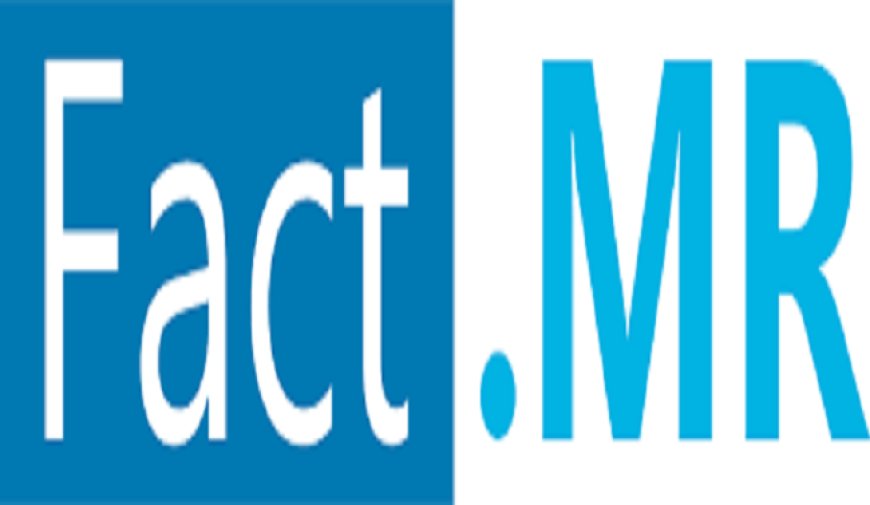Synthetic Cannabinoids Market Key Drivers & Forecast by Fact MR
The global synthetic cannabinoids market is expected to develop at a stunning 21% value CAGR, reaching US$ 14.8 billion over the assessment period 2022-2032.

The global synthetic cannabinoids market is expected to develop at a stunning 21% value CAGR, reaching US$ 14.8 billion over the assessment period 2022-2032. According to a newly published analysis on this market by Fact.MR, a valuation of US$ 1.82 billion is expected during FY 2022.
The expanding popularity of e-cigarettes, combined with a growing preference for the use of synthetic cannabinoids as a substitute for non-synthetic cannabis in some parts of the world, is expected to significantly increase use of synthetic cannabinoids. Furthermore, synthetic cannabinoids are promoted as a legal and safe alternative to marijuana in many parts of the world, resulting in increased sales, particularly among the millennial demographic.
Synthetic cannabinoids to treat nausea and anxiety caused by cancer chemotherapy are projected to open new growth avenues for synthetic cannabinoid manufacturers. Moreover, synthetic cannabinoid therapies for diseases such as arthritis, and acute and chronic pain will bolster the demand for synthetic cannabinoids during the forecast period.
Key Takeaways from the Market Study
- Global Synthetic Cannabinoids market to expand nearly 6x from 2022-2032
- By type, the Dronabinol Synthetic Cannabinoids segment is likely to register a CAGR of ~20%
- In terms of revenue, North America is projected to emerge as one of the most opportunistic markets, witnessing a significant growth rate throughout the forecast period 2022-2032
“Recent FDA approvals to treat anxiety & depression with lab drugs is further likely to augment the application of synthetic cannabinoids over the forthcoming years” comments an analyst at Fact. MR.
List of Key Companies Profiled in The Report
- Noramco Inc.
- Kannalife
- FSD Pharma
- CannBioRx Life Sciences
- TheraPix Biosciences
- Tetra Bio-Pharma
- Zynerba Pharmaceuticals
- Hyasynth Biologicals Inc.
- GW Pharmaceuticals
- Others
More Insights Available
Fact.MR, in its new offering, presents an unbiased analysis of the global Synthetic Cannabinoids market, presenting a historical analysis from 2017 to 2021 and forecast statistics for the period 2022-2032.
The study reveals essential insights based on Type (Dronabinol, Nabilonel) across five major regions (North America, Latin America, Europe, Asia Pacific, and the Middle East & Africa).
Competitive Landscape
In the competitive arena of synthetic cannabinoid distribution, partnerships with research associations and organizations have become a strategic move for distributors. By aligning with research initiatives, distributors aim to contribute to potential breakthroughs in synthetic cannabinoid research. Concurrently, pharmaceutical giants are making strategic investments in startup companies to catalyze research efforts and enhance production capacities in the synthetic cannabinoid sector.
A notable development in this landscape occurred in September 2021 when Noramco declared the transformation of its cannabinoids business division into a distinct entity named Purisys LLC. This move is accompanied by a substantial expansion of production capabilities for Dronabinol and cannabidiol (CBD) at Noramco's production facility in Athens, United States. This strategic decision positions Purisys LLC as a key player in the evolving synthetic cannabinoid market.
Another significant event in September 2021 involved Hyasynth, a sustainable biotechnology company, receiving a $2.5 million milestone payment from Organigram Holdings Inc. This payment was awarded in recognition of Hyasynth's noteworthy achievements in commercializing cannabidiol (CBD) as the first-to-market product produced and extracted from yeast. This collaboration underscores the industry's commitment to advancing sustainable and innovative approaches in the synthetic cannabinoid landscape.
In summary, the competitive landscape of synthetic cannabinoids is marked by strategic partnerships, investments, and pivotal developments in production capabilities. These initiatives not only reflect the industry's commitment to research and innovation but also set the stage for enhanced competitiveness and growth in the evolving synthetic cannabinoid market.
The synthetic cannabinoids market is a fascinating arena with immense potential and challenges. Navigating this space requires a comprehensive understanding of the scientific, regulatory, and societal dimensions at play. As stakeholders work towards responsible development, standardized regulations, and public awareness, the synthetic cannabinoids market holds the promise of transforming healthcare and recreational experiences in the years to come.







